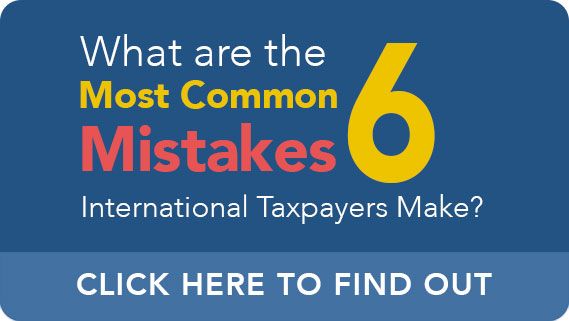Taxes for US Expats Living in Peru
You might think that moving to another country like Peru alleviates your U.S. tax liability – but that is not the case.
If you move to Peru, there will be some tax implications. For example, the IRS will tax you on your worldwide income. Furthermore, you might be taxed twice on the same income if you also have a tax liability to Peru. Through the process of tax planning, we can see if you qualify for perks available to expats that could help you avoid worldwide income tax and double taxation. To qualify, you will have to show the IRS that you have established residency in Peru or were physically present there for enough time during a tax year. When preparing your U.S. taxes, we can also make sure you report your foreign financial assets and other holdings if you must do so to comply with the Foreign Account Tax Compliance Act (FATCA).
You can call our tax CPAs for American expatriates living in Peru at (541) 362-9127 to get assistance from US Tax Help today.
The Tax Implications of Moving from the US to Peru
Moving from the United States to Peru involves various tax implications. We can help expats prepare for these implications and plan their taxes accordingly by claiming the right deductions and exclusions and reporting foreign financial assets when necessary.
Worldwide Income Tax
When you move abroad to Peru or another country, the United States will still tax you on your worldwide income. Fortunately, our tax CPAs for American expatriates living in Peru can help you reduce your taxable income by completing IRS Form 2555, Foreign Earned Income Exclusion (FEIE).
Even though the United States does not have a tax treaty with Peru, expats living there can still claim the FEIE, provided they meet the necessary criteria.
The maximum FEIE for 2024 is $126,5000 per person. This means that if you file your tax return jointly with your spouse, the maximum exclusion would double. You can only exclude income earned from foreign sources using the FEIE.
Double Taxation
Another implication of moving abroad to Peru is the risk of being taxed twice on the same income. To prevent that from happening, you can claim the foreign tax credit (FTC), provided you qualify for it. Expats living in Peru might still get the FTC if they pass the bona fide residence test or the physical presence test, even though Peru does not have a tax treaty with the United States.
The foreign tax credit lets expats count taxes paid to a foreign country of residence toward their tax liability to the United States. Generally, only income, war, and excess profits taxes count toward the FTC. You can benefit from the FTC by completing Form 1116 and attaching it to your annual tax return.
FATCA Compliance
The Foreign Account Tax Compliance Act created various reporting requirements for expats living overseas, including in Peru. Part of FATCA compliance involves filing IRS Form 8938 for the necessary years. U.S. expats living in Peru with $200,000 in foreign financial assets on the last day of the tax year or $300,000 at any time during the tax year must file Form 8938. If you file taxes jointly with your spouse, the reporting threshold doubles.
Also, after moving to Peru, you might have to complete and file a Report of Foreign Bank and Financial Accounts (FBAR) with the Financial Crimes Enforcement Network. This is necessary any year the value across all your foreign bank accounts exceeds $10,000. The IRS heavily penalizes expats who do not comply with FATCA reporting requirements. Americans who live domestically with foreign bank accounts or assets might also have to file these information returns.
Submitting Your Taxes as a US Expat Living in Peru
While filing your taxes from overseas can be complicated, it is crucial that you file on time. Otherwise, the IRS might financially penalize you, whether you filed your return late intentionally or unintentionally.
Tax Day is when all tax returns and corresponding forms are due, even if you live in Peru. However, the IRS gives expatriates an automatic two-month filing extension. If you need even longer to file your return, you can submit IRS Form 4868 electronically.
Interest starts accruing on unpaid tax on Tax Day. So, even though you can get filing extensions if needed, you should aim to file your taxes by the normal deadline, as this can help you avoid unnecessary costs, fines, or other issues.
Qualifying for US Tax Credits While Residing in Peru
To qualify for certain tax benefits, namely the FEIE and the FTC, taxpayers must demonstrate their eligibility to the IRS.
The IRS uses two main tests to determine eligibility for the FEIE and the FTC: the physical presence test and the bona fide residence test. These tests allow expats in various situations to benefit from tax perks. We can measure your time spent in Peru during the tax year against the IRS’s criteria for establishing residency in a foreign country.
Additional exclusions and deductions might be available to expats, including the foreign housing exclusion, which is part of the FEIE. Furthermore, expats can often claim deductions available to all American citizens, like the standard deduction and the child tax credit, even if they do not currently live in the United States.
During the tax planning process, we will determine which tax credits and deductions you qualify for based on your specific situation. For example, our tax accountants will review your income, expenses, dependents, property, assets, and other pertinent financial information to see how we can best reduce your tax liability as an expat while keeping you compliant with your reporting responsibilities.
Call Our Tax Accountants for Help with Your US Taxes
You can speak to the tax CPAs for American expatriates living in Peru at US Tax Help by calling (541) 362-9127.
